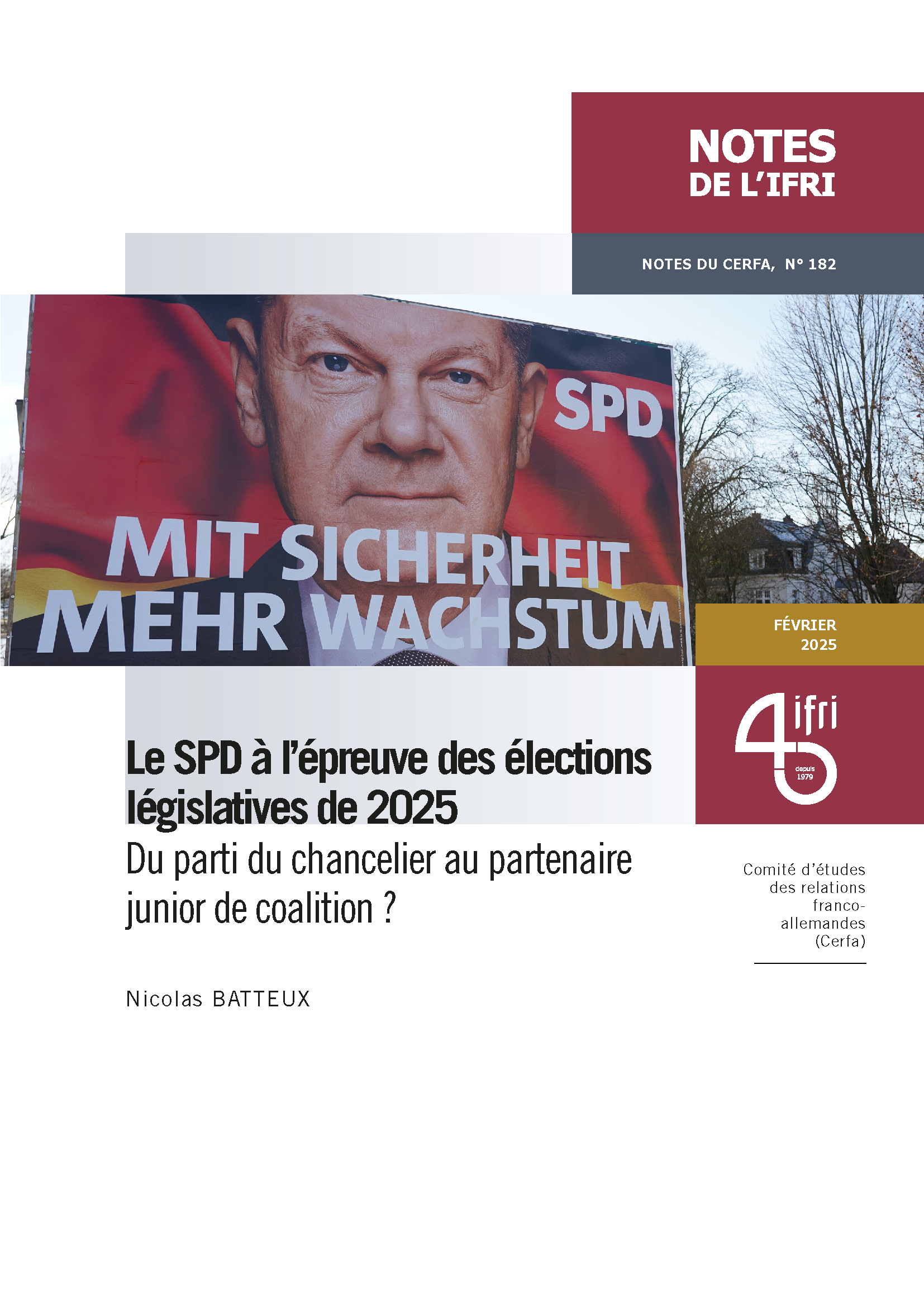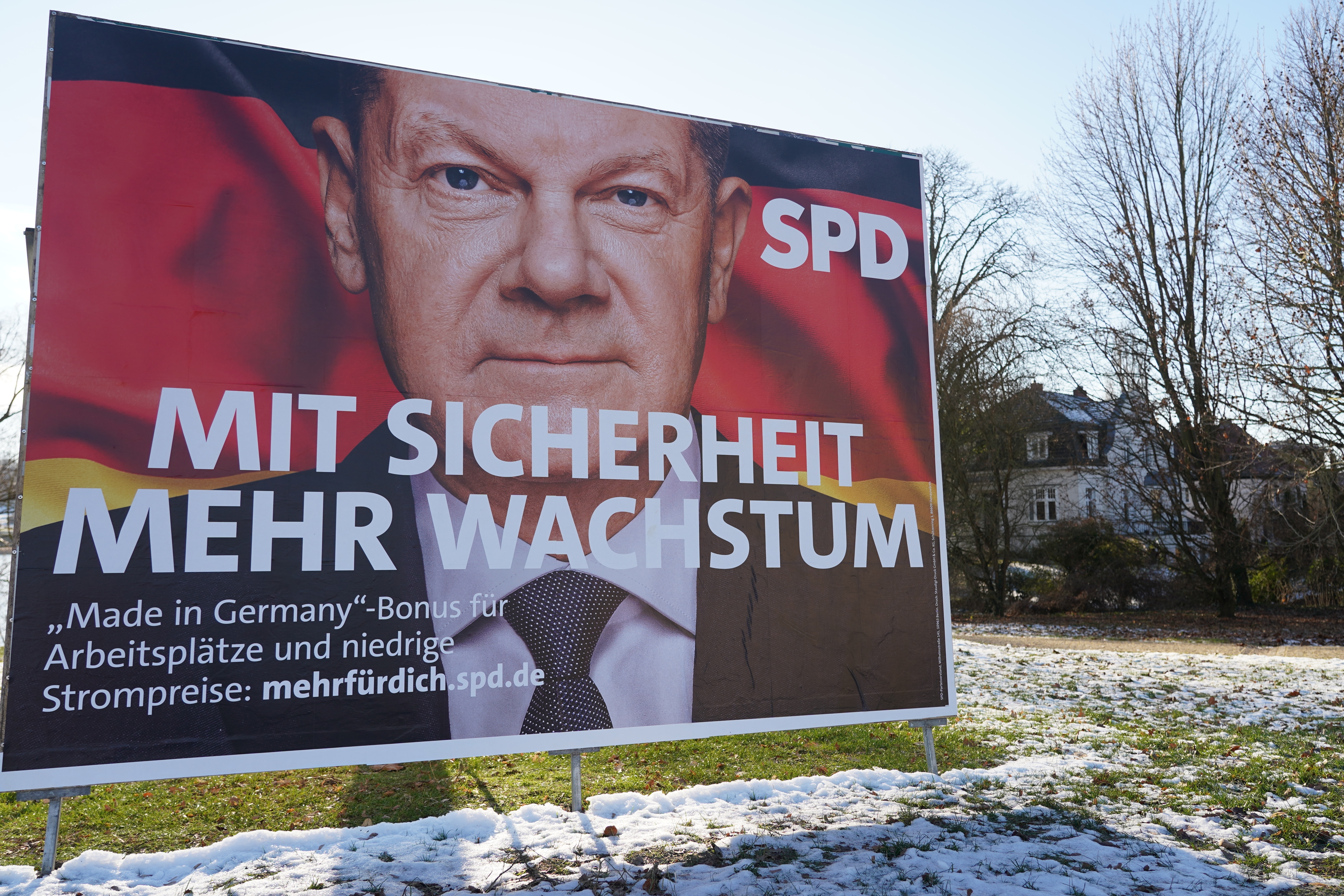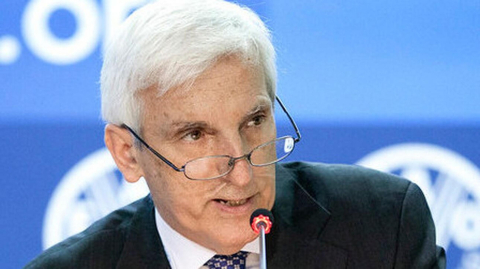The SPD in the Run-Up to the 2025 General Election: from Chancellor's Party to Junior Coalition Partner?

The 20th legislative period (2021-2024) came to an abrupt end in the Federal Republic, following the dismissal of Finance Minister and Vice-Chancellor of the Liberal Democratic Party FDP, Christian Lindner, by Chancellor Olaf Scholz, due to deep political disagreements, in November 2024.

The diverging views on the budget (which culminated in the debate around the ‘debt brake’ and the financing of future-oriented investments) and the economy gave rise to increasingly virulent tensions between the coalition partners. These developments took place against a backdrop of paradigmatic shifts in foreign and defense policy, which explains, among other things, the exacerbation of the challenges facing the Traffic light coalition to the point of failure.
Looking back at the achievements and failures of the Social Democratic Party of Germany (SPD) in the Scholz government helps us to better understand the debates taking place in the run-up to the February 2025 federal elections, to understand what is at stake and to anticipate what priorities Germany is likely to set in the future.
Nicolas Batteux holds a doctorate in German history and civilization and is a lecturer in German civilization at the Université de Lorraine, attached to the EA 3944 CEGIL laboratory (Centre d'études germaniques interculturelles de Lorraine).
This publication is available in French (PDF): "Le SPD à l’épreuve des élections législatives de 2025 : du parti du chancelier au partenaire junior de coalition ?"

Available in:
Themes and regions
DOI
Notes du Cerfa, No. 182, Ifri, February 2025
Share
Download the full analysis
This page contains only a summary of our work. If you would like to have access to all the information from our research on the subject, you can download the full version in PDF format.
The SPD in the Run-Up to the 2025 General Election: from Chancellor's Party to Junior Coalition Partner?
Related centers and programs
Discover our other research centers and programsFind out more
Discover all our analyses
Securing critical raw material (CRM) value chains – a prerequisite for Europe’s technological resilience
At the heart of economic security, technological resilience is a backbone of the European Union’s (EU) competitiveness. The EU’s energy and digital transitions depend on critical raw materials (CRM).

Reconciling competitiveness and demographic change: a Franco-German imperative
France and Germany are facing parallel demographic shifts that could reshape the future of their economies and their social models. These shifts reflect broader European patterns but are magnified by the central role both nations play in EU governance and competitiveness.
Taking the Pulse: Does France's Political Crisis Weaken Europe's Geopolitical Hand?
While the EU tries to navigate a myriad international challenges, France is experiencing historic political disarray. What impact will instability in Paris have on Europe's geostrategic capacity?
Imaginary and Reality of the Franco-German border: a Laboratory for Europe of tomorrow
In Europe, the question of borders is a central issue. According to the European Parliament, border regions cover around 40% of the European Union (EU) territory, concentrate 30% of its population and produce nearly a third of its gross domestic product.










